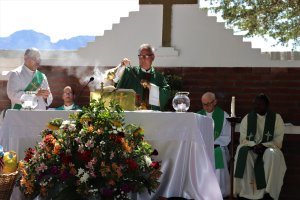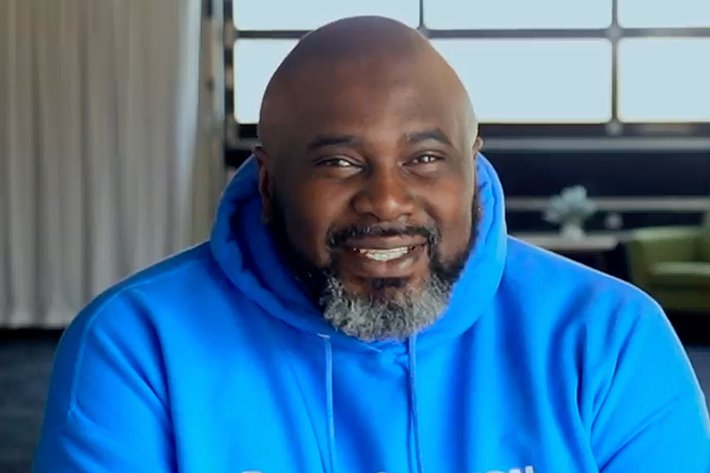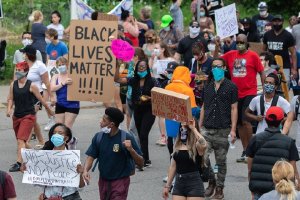Shelley and David Park learned it the hard way in 2019. After a police officer killed African American pre-med student Atatiana Jefferson in her home while she was playing video games with her 8-year-old nephew, the couple had to somehow talk about racism to their biological son, Samuel, and his younger adopted African American brother, Jeremiah.

The two boys were getting close to the age when they’d need to account for their siblinghood, be there for support if the other one was detained by police, and just generally be aware that things are not always for the best in this best of all possible worlds.
The couple sought help from Black friends and in so doing, birthed a free course: “Let’s Talk Race: A Beginner’s Guide to Conversations About Race,” targeted largely at white Christians, and covering the subject of race in America—what the Bible says about it, what history has recorded about it, and what society is doing about it—for better and for worse.
“I had been following all these people of color on Instagram and really learning and reading books,” said Shelley, who grew up in the Philippines as a missionary’s daughter. “Many of them said, ‘We’re just tired,’ and ‘White people, we need you to get your people.’ And it was like the Lord said very clearly, as I was processing Atatiana’s murder, that it was time to do something.”
After teaching the classes for three years the Dallas-area couple created LTR (Let’s Talk Race) Ministries Inc., a nonprofit with an aim to enlighten white people and churches on race and racial reconciliation.
“We’re not really helping you across that bridge or down that journey,” said Shelley. “We’re saying: Hey, you need to go take that journey. You need to go cross that bridge and we’re going to give you some tools to help you do that and do it well.”
Those tools include recommended books, movies, videos, podcasts and people to follow on social media to “expand your echo chamber.”
The organization’s website explains its reason for existence: “We provide a grace-filled, gospel-centered, safe place for white people to explore, ask questions, learn and grow. We have learned through the years that white Christians really want to be meaningful partners in these conversations, but they do not engage because they are afraid they will say something wrong and hurt someone’s feelings. This means that nothing actually changes because we are not having these very important conversations.”
Among the subjects covered in the course are how the social construct of race was created, what the Bible says about race, what does it mean to be white, and why it's so hard to have meaningful conversations about race and racism.
One thing the Parks learned right away was that participants preferred to start the journey in a mostly white setting where they felt more comfortable asking questions without worrying about offending people of color.
There is a point, however, when attendees move on to continue discussions with interracial groups such as Be the Bridge, a nonprofit with the purpose of fostering “anti-racist bridge-builders,” and Threaded, an organization that encourages cooperative community action by a diverse group of churches.
“My Black brothers and sisters, the church leaders that I know, they’re kind of going: ‘I’m waiting for the white people to come with the right attitude before I step into the ring,’” said Markus Lloyd, the Black founder of Threaded, which partners with LTR for initial “reorienting” of mostly white groups before holding cross-cultural discussions. “So I always have to tell them I’m preparing white people to meet you so that we can actually do this right this time.”
Registrations for LTR peaked in 2020—the year of COVID and the protests triggered by the death of George Floyd—then waned during the storms over critical race theory, but are now back on an upswing.
David Parks said most class enrollees experience an “aha moment,” but acknowledged that a few have gotten angry and ditched after a session or two. Some Let’s Talk Race alums speak of how that “aha” transformed their outlook on life, how they raise their children, and how they see themselves as churchgoers and community members.
One such is Robyn Morton, a white Dallas financial adviser who has done the course twice. She said, “Whiteness did not register to me as a culture. I didn’t have any idea of what white supremacy really was and how prevalent it was in my life, in my thought process, in my approach to life. It’s been a huge shift in a lot of ways.”
Since taking the class and realizing that white supremacy runs deeper in the culture than the Ku Klux Klan and skinheads, she’s observed Black History Month with her family, and has given books to her two young children about the Rev. Martin Luther King Jr., Rosa Parks and Ruby Bridges.
“Being able to talk to my kids about the reality of the situation really, really matters to me because there are so many things going on in school systems now to try and shift the narrative on what things are talked about and how things are talked about,” she said.
The Parks hope that the white people graduating their classes leave feeling a responsibility to take action individually and with their churches, and not leave the work up to others.
As Shelley Parks said, “One of the things my dad has said several times is: We’re the ones that created this problem, so we’re going to probably have to be the ones to solve it.”
Blog contributed by Gladys McBride
From its beginnings, the Church of Scientology has recognized that freedom of religion is a fundamental human right. In a world where conflicts are often traceable to intolerance of others’ religious beliefs and practices, the Church has, for more than 50 years, made the preservation of religious liberty an overriding concern.
The Church publishes this blog to help create a better understanding of the freedom of religion and belief and provide news on religious freedom and issues affecting this freedom around the world.
The Founder of the Scientology religion is L. Ron Hubbard and Mr. David Miscavige is the religion’s ecclesiastical leader.
For more information, visit the Scientology website or Scientology Network.


